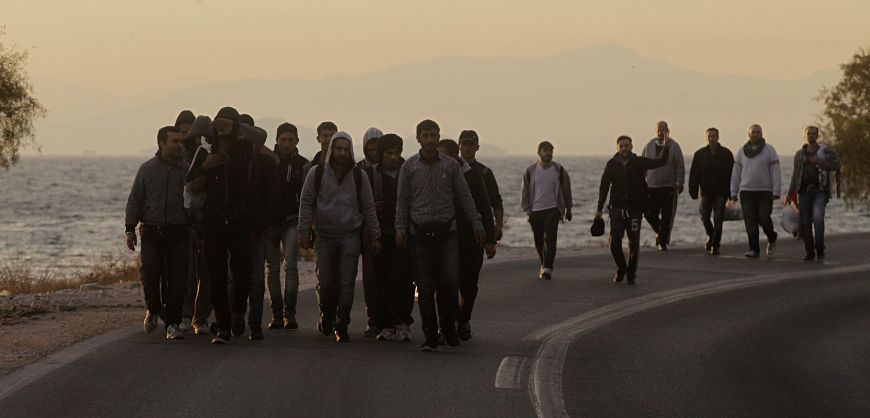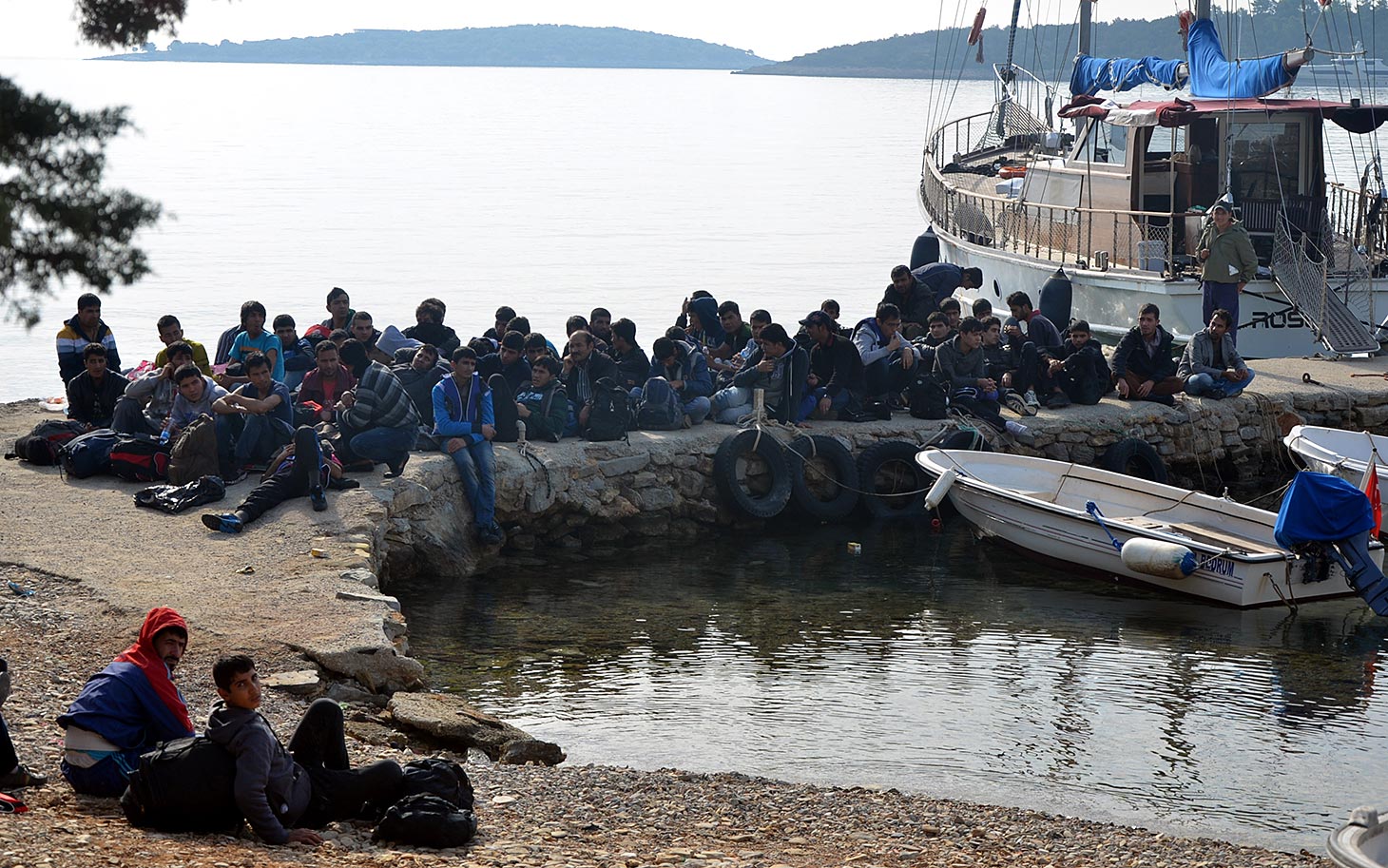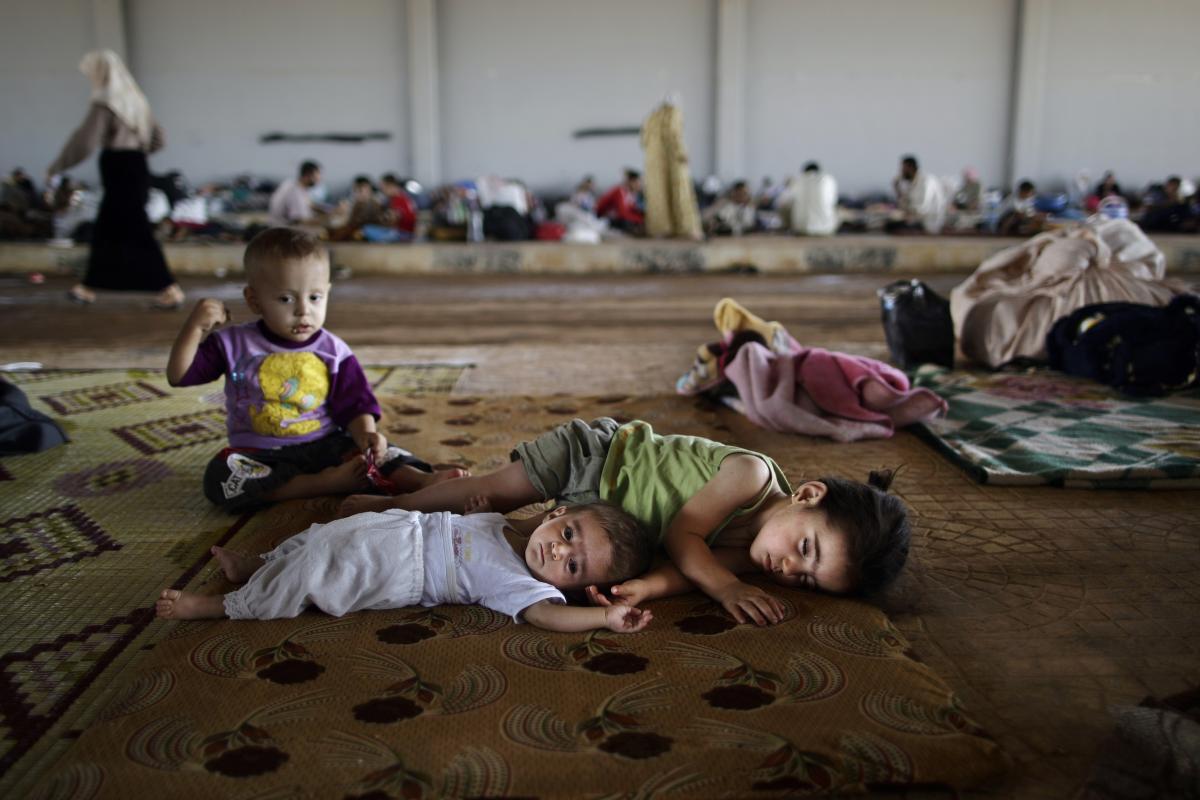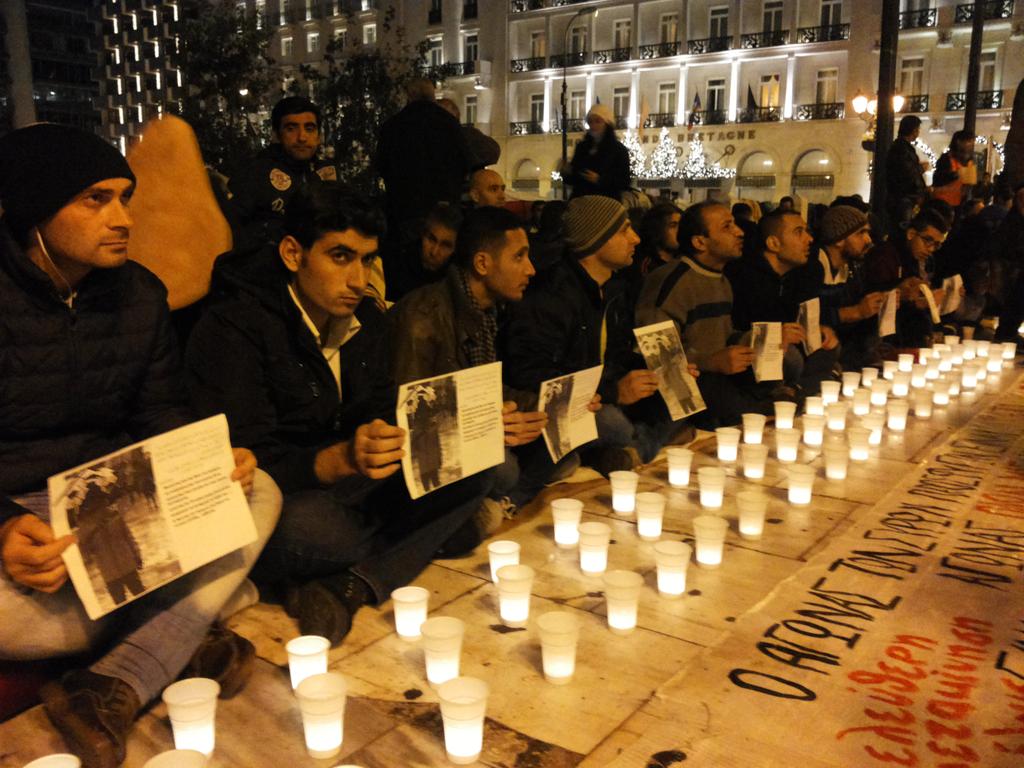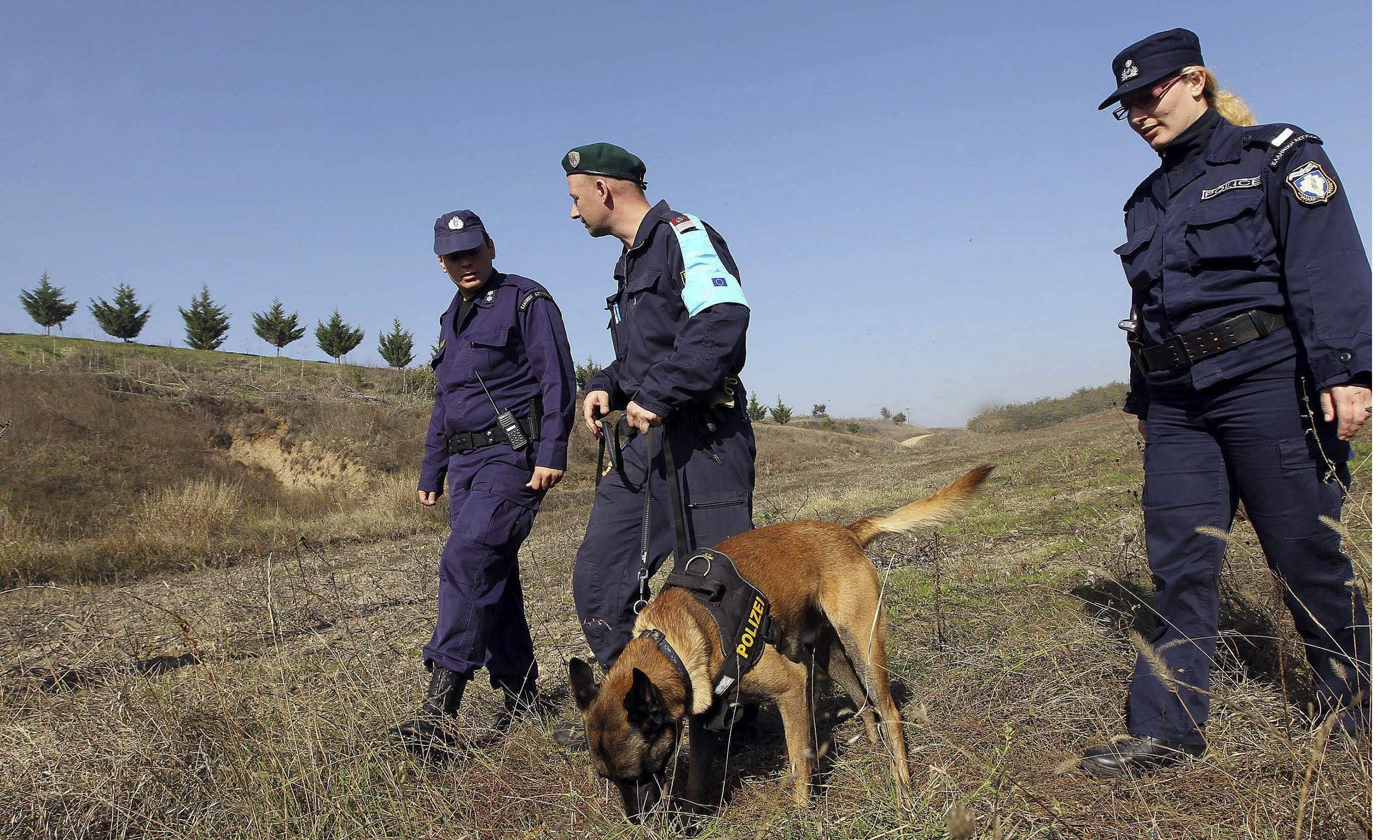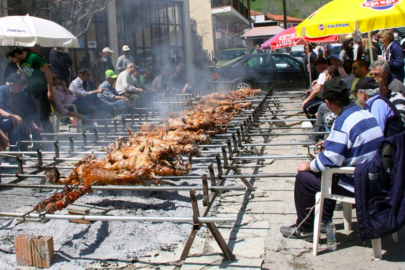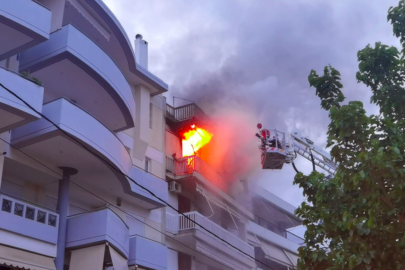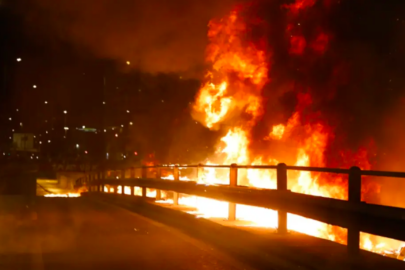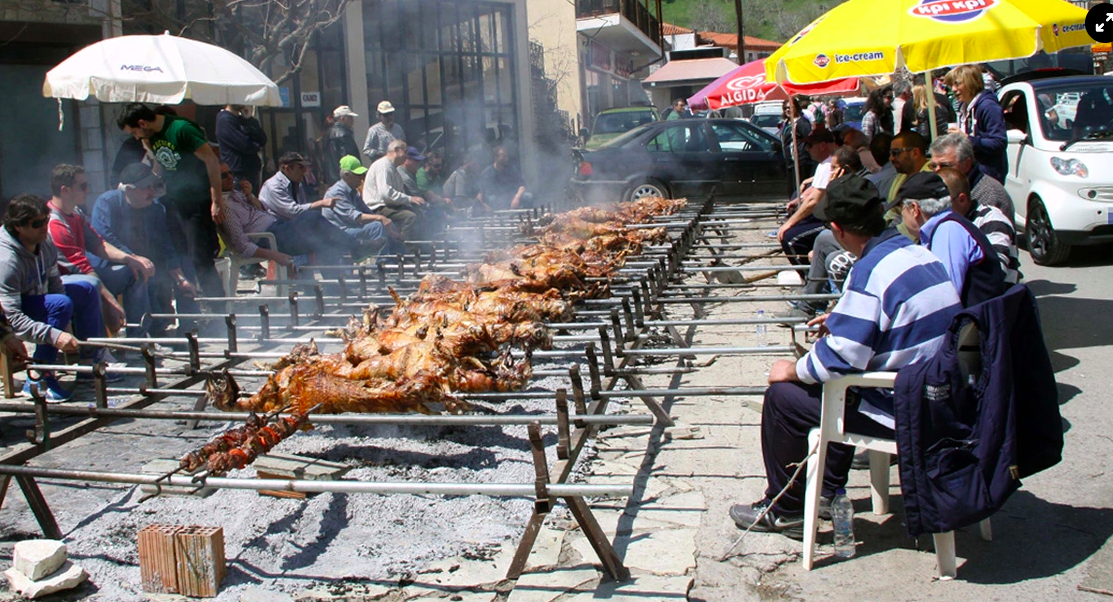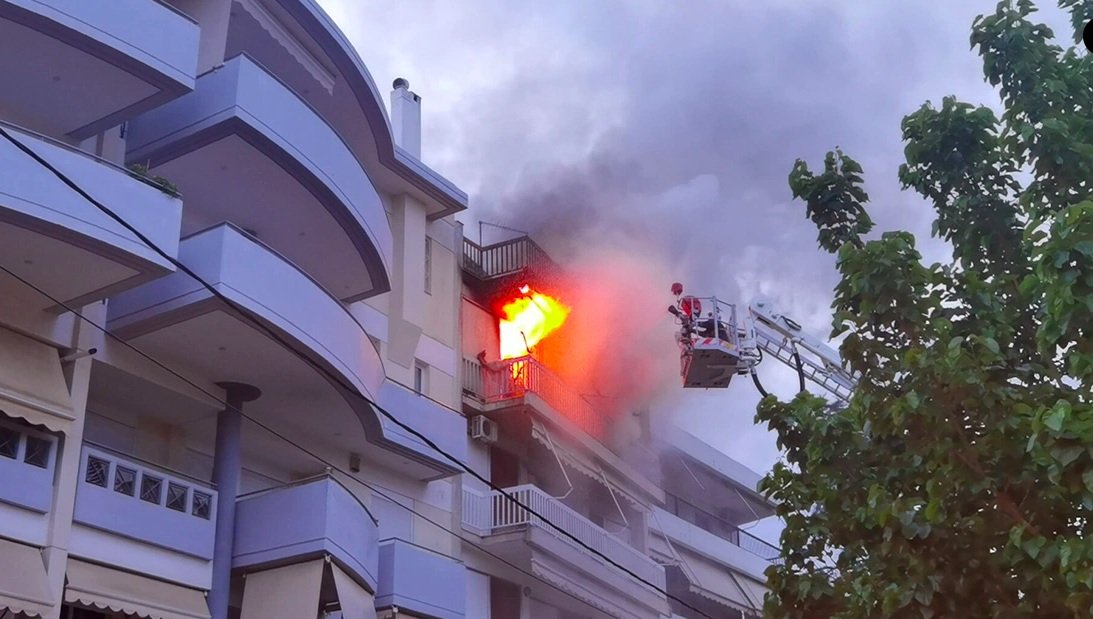Eight Syrian and Palestinian men sit in an Athens basement and swap stories about their escape from the war in Syria and attempts to reach safety in Europe. Each refugee has a different tale to tell, but all share the common thread of desperation and danger faced in crossing to Greece.
Ahmed* tells the others that he tried to reach Greece at night from Turkey on a boat carrying 34 other Syrian refugees, including four small children and a double amputee. Suddenly, out of the dark, a Greek coastguard vessel appeared and masked men boarded their boat, removed the engine and dropped it into the sea.
As Ahmed and some of the other Syrians tried to climb onto the coastguard boat, they were badly beaten. “We told them we are Syrians. If you send us back we will die there. They said, ‘Die, but don’t come here,'” he recalls. Nobody in the room seems horrified or even surprised. And the others laugh as Ahmed tells how his head was so swollen from the beating that he was later hospitalized.
This was after Ahmed’s boat had been towed to Turkish waters, where they were left drifting until found by the Turkish coastguard. It was Ahmed’s third attempt to reach Greece from Turkey. In May, he crossed the Evros River with two friends and made it to the town of Orestiada before being arrested while buying train tickets for Athens. The three were detained briefly and sent back across the river to Turkey.
His second attempt days later was abandoned because the river was too high and dangerous to cross. And in June, he made a fourth attempt on a boat bound for the Greek island of Samos. This time, the Greek coastguard picked them up and took them to Samos, arranging hospital treatment for two ill Syrians on board.
But for those who do reach Greece after fleeing persecution and violence in places such as Syria, Afghanistan, Somalia and Iraq, life is hard. The eight men living in the small Athens basement room pay 400 euros each month between them and sleep on thin mattresses. No one has a regular job and they don’t know how they will pay the next month’s rent.
None of them intends to stay in Greece. Many want to sneak into countries such as Germany and Sweden. But the road onwards also contains many obstacles. Radwan,* a 23-year-old from Damascus, wants to go to Sweden or Norway. Last June, Radwan says, he and two others were arrested and detained near the Serbian border after crossing from northern Greece into the former Yugoslav Republic of Macedonia. Now back in Athens, he says he plans to try to leave again – to anywhere but Greece.
Despite their hardship, the men recognize the difficulties faced by many Greeks, too. “The people are very nice and it’s a beautiful city, but the situation is very bad,” says the oldest of the eight, Farid,* who is in his forties. He has five children in Syria to support and they now live with other family members while he tries to find a way to return some stability to their lives.
A lawyer by profession, Farid says that his life in the western Syria city of Homs before the war was very good. But two to three years ago, he says, “We lost everything. We lost our jobs. We had no income or resources.” He sold the family home and car and paid some of the money to a smuggler in Turkey to take him to Greece. Now he is looking to find his way to Sweden.
In some ways the eight men in Athens are the lucky ones. Another group of young Syrian men, drinking tea in the Turkish city of Izmir and waiting to make the clandestine crossing to Europe, tell stories of failed attempts. Many of their stories involve them being violently deterred from entering Europe or being returned to Turkey.
With no end in sight to the Syrian crisis and with few legal ways of entering Europe available, more people will continue to make the dangerous journey across the sea from Turkey to Greece or from North Africa to southern Europe in search of stability, security, reunification with family and an opportunity to support family members back home.
* Names changed for protection reasons.

